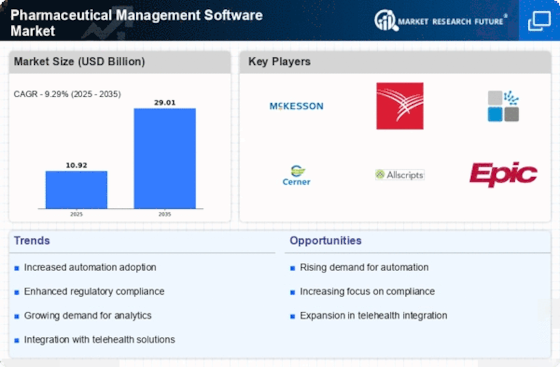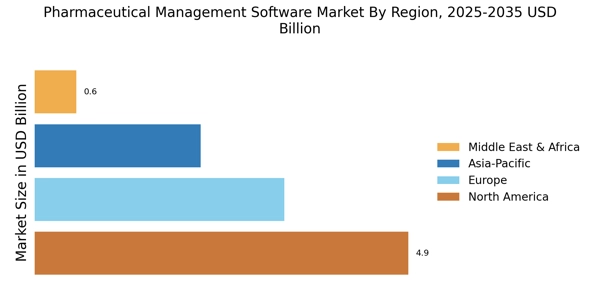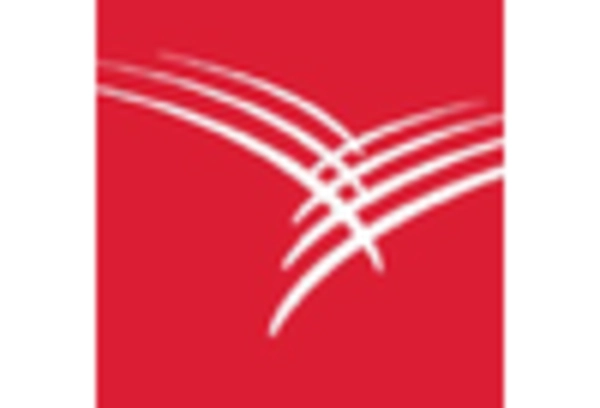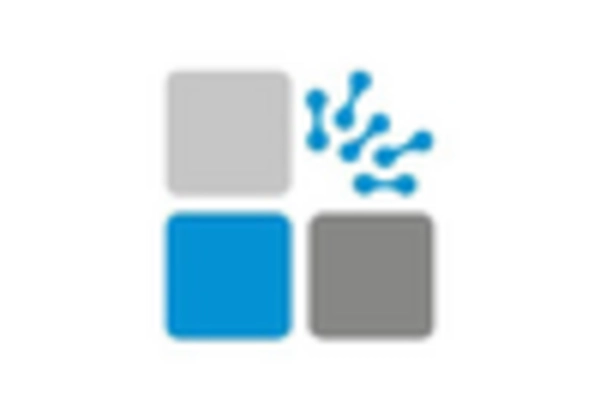Rising Demand for Automation
The Pharmaceutical Management Software Market is experiencing a notable surge in demand for automation solutions. This trend is primarily driven by the need for increased efficiency and accuracy in pharmaceutical operations. Automation minimizes human error, streamlines workflows, and enhances productivity. According to recent data, the adoption of automated systems in pharmaceutical management has led to a 30% reduction in operational costs for many organizations. As companies strive to optimize their processes, the integration of automated software solutions becomes essential. This shift not only improves compliance with regulatory standards but also accelerates the drug development lifecycle. Consequently, the rising demand for automation is a pivotal driver in the Pharmaceutical Management Software Market.
Growing Focus on Patient Safety
The Pharmaceutical Management Software Market is increasingly shaped by a growing focus on patient safety. As healthcare providers and pharmaceutical companies prioritize patient outcomes, the need for effective management software becomes paramount. This software aids in tracking medication usage, monitoring adverse effects, and ensuring proper drug distribution. Recent studies indicate that implementing advanced management systems can reduce medication errors by up to 50%. Furthermore, the integration of real-time data analytics enhances decision-making processes, ultimately leading to improved patient safety. As the industry continues to evolve, the emphasis on patient safety is likely to drive the demand for sophisticated pharmaceutical management software solutions.
Expansion of Telehealth Services
The Pharmaceutical Management Software Market is witnessing a transformative shift due to the expansion of telehealth services. As healthcare delivery models evolve, the integration of management software with telehealth platforms becomes increasingly vital. This integration facilitates seamless communication between healthcare providers and patients, ensuring timely medication management and adherence. The telehealth market is projected to grow at a compound annual growth rate of 25% over the next five years, indicating a substantial opportunity for pharmaceutical management software providers. By aligning their solutions with telehealth services, companies can enhance their offerings and meet the changing needs of the healthcare landscape, thereby driving growth in the Pharmaceutical Management Software Market.
Regulatory Compliance Requirements
The Pharmaceutical Management Software Market is significantly influenced by stringent regulatory compliance requirements. Pharmaceutical companies are mandated to adhere to various regulations, including Good Manufacturing Practices (GMP) and Good Distribution Practices (GDP). These regulations necessitate the implementation of robust management software to ensure traceability, data integrity, and reporting accuracy. The increasing complexity of regulatory frameworks has led to a heightened focus on compliance solutions, with the market for compliance-related software projected to grow by 15% annually. As organizations seek to mitigate risks associated with non-compliance, the demand for specialized pharmaceutical management software continues to rise, making regulatory compliance a critical driver in the industry.
Increased Investment in Research and Development
The Pharmaceutical Management Software Market is bolstered by increased investment in research and development (R&D) activities. Pharmaceutical companies are allocating substantial resources to R&D to innovate and bring new drugs to market. This trend necessitates the use of advanced management software to streamline R&D processes, manage clinical trials, and ensure compliance with regulatory standards. Recent data suggests that R&D spending in the pharmaceutical sector has reached over 200 billion annually, highlighting the critical role of management software in optimizing these investments. As organizations seek to enhance their R&D capabilities, the demand for specialized pharmaceutical management software is likely to grow, positioning R&D investment as a key driver in the industry.

















